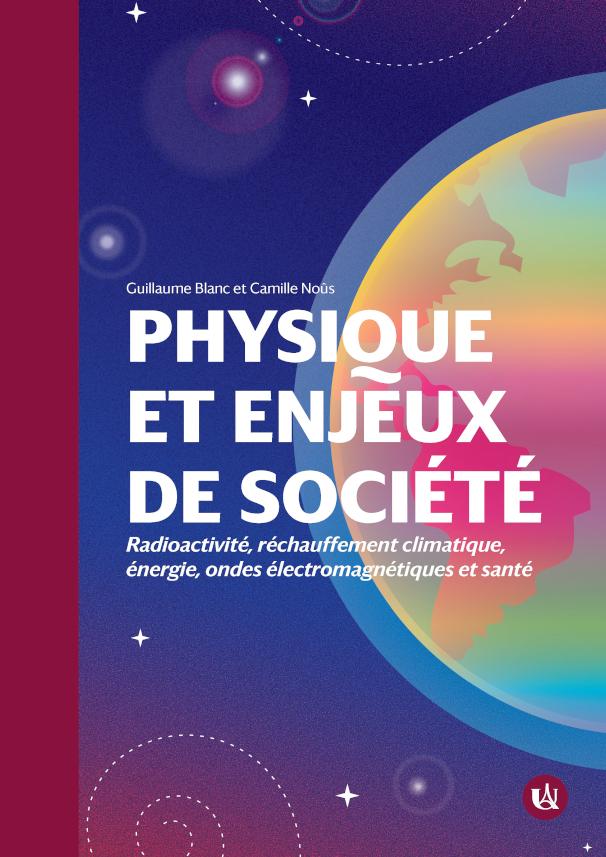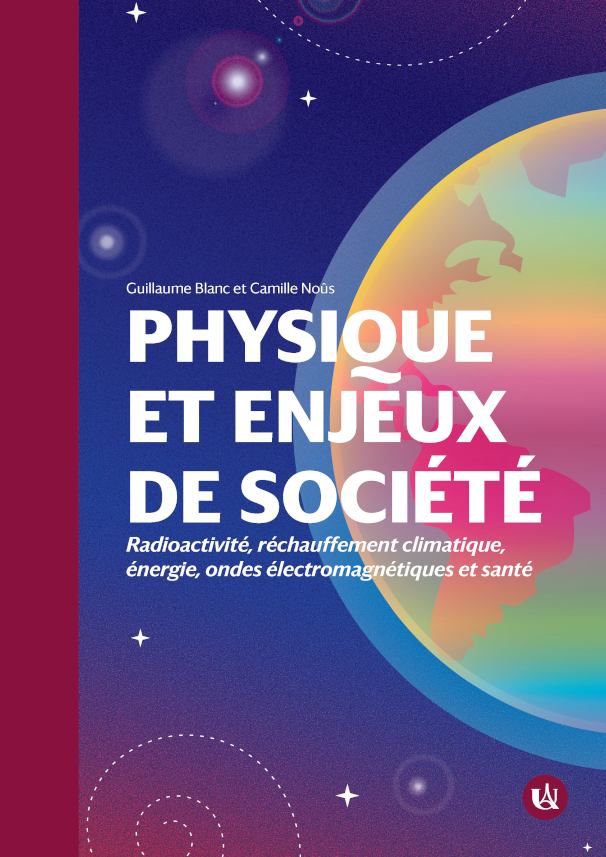Physique et enjeux de société Radioactivité, réchauffement climatique, énergie, ondes électromagnétiques et santé

Résumé
La science est au cœur de multiples enjeux de société, au rang desquels les nombreux défis engendrés par les crises écologiques. Ces enjeux impliquent des mécanismes que la physique peut permettre d’expliquer. Une formation universitaire de physique fournit un bagage standard pour critiquer des résultats liés à la discipline : ordres de grandeur, adéquation entre les modèles et les expériences, ou encore incertitudes expérimentales. Cet outillage est nécessaire à tout scientifique. Mais un·e citoyen·ne doit aussi être capable d’interagir avec ses semblables de manière rationnelle, c’est-à-dire comprendre les débats de société et y participer en connaissance de cause.
C’est dans cette optique que s’inscrit cet ouvrage, issu d’un cours à destination des étudiant·e·s en troisième année de Licence de physique à Université Paris Cité. Son objectif est double : transmettre un ensemble de connaissances minimales dans quelques domaines physiques sur des thématiques que l’on rencontre fréquemment dans les médias, afin d’en saisir les enjeux, et d'autre part donner des clés permettant de se construire une opinion éclairée.
Après avoir expliqué comment le savoir scientifique s’élabore, le manuel apporte des éléments de compréhension sur la radioactivité, le réchauffement climatique, l’énergie dans la société et les émissions de gaz à effet de serre, sans oublier les ondes électromagnétiques et la santé.
Mots-clés
Enjeux de société, Physique, Radioactivité, Réchauffement climatique, Énergie, Ondes électromagnétiques et SantéChapitres
-
Avant-propos
-
Introduction
-
Chapitre 1 : La méthode scientifique
-
Chapitre 2 : Nucléaire et radioactivité
-
Chapitre 3 : Le réchauffement climatique
-
Chapitre 4 : L’énergie et le CO2
-
Chapitre 5 : Ondes électromagnétiques et santé
-
Annexe A : Quelques organismes internationaux pour le climat
-
Annexe B : Bilan énergétique de la France
-
Annexe C : Rendement théorique d'une éolienne
-
Annexe D : Puissance géothermique
-
Références

Métriques
Collection
Licence

Cette œuvre est sous licence Creative Commons Attribution 4.0 International.



